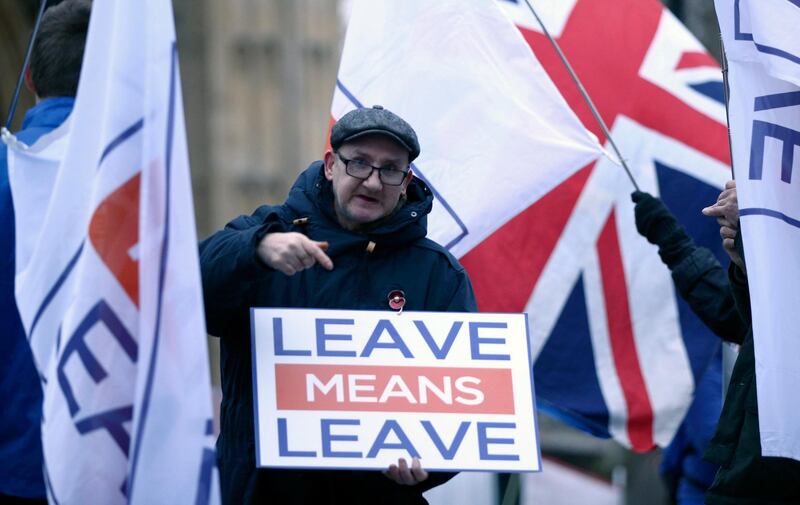British Prime Minister Theresa May came under pressure on Monday to explain what further assurances she can secure from the EU before MPs vote on her unpopular Brexit deal next week.
With Brexit looming on March 29, opposition Labour leader Jeremy Corbyn accused May of “running down the clock in an attempt to blackmail” parliament into supporting her withdrawal deal.
EU leaders have repeatedly said that the deal currently on the table is not open for renegotiation
The House of Commons returned from its Christmas break ready to resume debating the withdrawal deal struck with the EU in November, before voting on it next week, possibly on January 15.
_______________
Read more:
Election threat rises as May sets Brexit vote for 15th
Lorries take part in planned traffic jam as UK prepares for no-deal Brexit
_______________
Mrs May postponed the vote last month because of intense opposition from MPs, promising further clarifications from Brussels.
But after an EU summit in December, and talks with the Dutch, French, German, Spanish and EU leaders in recent days, she admitted these are still proving elusive.
“We are continuing to work on further assurances, on further undertakings from the European Union,” she said.
A government source conceded these may not be secured before MPs resume debating the Brexit deal on Wednesday.
In Brussels, European Commission spokesman Margaritis Schinas repeated that the Brexit deal would not be reopened.
“There are no negotiations, because all we have on the table is what we consider given, acquired and approved,” he said.
There are concerns in Westminster that without any breakthrough in Brussels, Mrs May could delay the vote again, bringing Britain closer to leaving the EU with no agreement in place.
The Brexit deal took nearly two years to negotiate and only covers separation issues, leaving open the future relationship – but it has provoked anger on all sides in London.
Mrs May survived a confidence vote in her own Conservative party over the agreement in December, but her Brexit-backing MPs are still in open revolt.
Her spokesman denied on Monday that the government could delay Brexit, after junior minister Margot James said that this might be necessary to avoid Britain leaving without no deal.
Some Brexit supporters say there is nothing to be feared from this.
Former foreign secretary Boris Johnson said a 'no deal' scenario was actually "closest to what people voted for" in the 2016 referendum.
But many disagree, and more than 200 MPs from all parties have written to Mrs May urging her “to agree a mechanism that would ensure a ‘no-deal’ Brexit could not take place”.
Mrs May was due to meet Conservative MPs over private drinks this week to try to sway waverers, and one minister insisted the vote next week could still be won.
“A week is a very long time in politics,” junior Brexit minister Kwasi Kwarteng told BBC radio.
The government will on Tuesday launch a new radio and social media advertising campaign designed to prepare Britons for the full impact of no deal.
On Monday, the authorities staged an exercise for easing congestion in Channel crossings in case of new trade barriers with the EU, using an airfield to hold lorries near Dover.
But it drew criticism for only involving 89 trucks and haulage companies dismissed it as “too little too late”. Currently around 10,000 heavy goods vehicles arrive every day at the port.






